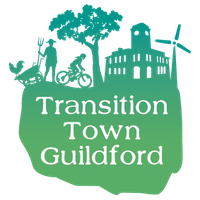Last week the City of Swan council voted again not to trial a later starting time for Council meetings. Before I get to the ins and outs of the meeting, for those not familiar, here is some brief background on the matter.
This topic came about in May last year (2014) when we called a Special Electors meeting to discuss the Claymore Close trees and council meeting procedures. The whole saga of the Claymore Close trees had highlighted some bigger issues about council processes and accessibility that we thought could be improved. One of these that became evident for us and others who started attending meetings was the early start time of these meetings (5.30pm).
The timeline:
- 19 May 2014 – Electors request later starting time 6:30 pm
- 16 June 2014 – Council referred the matter to CEO for a detailed report
- 10 September 2014 – CEO report. Council vote not to trial new time before council amalgamation. Start consultations online and in meetings. Defer decision to new council 2015.
- 4 November 2015 – Current meeting. Results of surveys and staff report recommends no change to meeting time.
There are several statements in the council report that I disagree with and you can read my full deputation on it below. But the key points were:
- Almost everyone who completed a survey indicated they preferred a later start time
- Disagree that 5:30 is optimal, having never tried a later start time
- No evidence provided that earlier time suits a broad demographic of the community
The new Councilor Adam Kovalev moved an alternative motion for council meetings to start at 6:30 pm. This was amended by Cr Parasiliti that it be for a trial period of 6 months. The councilors did at least speak and debate the item, but I particularly want to address many of the arguments given below. Cr Kovalev spoke very well and got to the core of the issue but the motion was lost 12 to 2 (Cr Kovalev, Cr Parasiliti). Bizarrely, our new ward Councilor Ian Johnson (who originally moved the motion at the special electors meeting) seconded Cr Kovalev’s motion, but then proceeded to speak against it and basically said that he had changed his mind now he was on council.
Arguments presented against the motion and my rebuttals are listed below:
1. People only come to one council meeting, so if it’s important, they will organise to be here (Cr Bailey, Cr McNamara & several others)
Rebuttal: It’s irrelevant if people only come to one meeting when an item affects them or a hot topic comes up. The point is, that if and when they do want to attend a council meeting, the start time is as easy as possible for them to get there. From personal experience and many people I’ve spoken to, 5:30 pm is not a convenient time to get there.
2. It would disadvantage others, especially young families (Cr Elliott)
Rebuttal: I can’t say from personal experience, but I actually think it’s the opposite. A later start time would allow people with young families to finish feeding/dinner routine and put them to bed. Then one parent may be able to attend the meeting.
3. If it ain’t broke, don’t fix it (Cr McNamara)
Rebuttal: This is a clear example of the status quo bias. The refrain heard against all requests for change. Perhaps another time could work better? But how would you know if you never try?
4. There are less people now (conclusion of meeting 7:30 pm) than at 5:30 pm, therefore an earlier start time is better (Cr Lucas)
Rebuttal: The number of people at the end of the meeting can’t be compared to the start time. There were only four people at the end of the meeting (as an aside, I would wager that most of those who left had no idea what had happened to their item given the ‘bloc voting’ process, but that’s another blog altogether!). What needs to be compared is the number of people at the start (5:30 vs 6:30 pm). Again, you can’t say because it hasn’t been tested. I might add that Cr Kovalev made an excellent point, that it’s not even necessarily about more bums on seats, just making it more accessible is worthwhile itself. This leads into the valid issue of measuring success.
5. What will the trial achieve, no measurement (Cr Bailey)
Rebuttal: While it was a good idea by Cr Parasiliti to trial it for 6 months (something we called for last year), without agreeing on how you’d assess or decide if it was successful is a serious flaw. Counting the number of people in the chamber is obvious, but I don’t think it’s the best measure. You really need to actively find out what residents prefer. An exit survey might be a good start.
6. Majority of residents in City of Swan didn’t comment, sample sizes of surveys are small (Cr Lucas, Cr Elliott, others)
Rebuttal: I agree the sample sizes of 48 and 31 residents is small and disappointing. But rather than taking it as a sign that people don’t care, I see it as a failure of the City and councilors to engage with their constituents on this issue. When there were paper surveys at meetings, I never once heard the mayor announce it or encourage people to fill it out. How many residents did councilors canvas each time this issue came up? How many people did they encourage to fill out the survey online? And on a related note, I found out about this issue at 1 pm on the day, via a journalist. Not from one of my three ward councilors, one of which who moved the motion originally, and not from the City, having initiated the special electors. Yes, I should read the council agendas, but I don’t always.
7. Council meetings aren’t to engage residents, councilors should be doing this directly (Cr McDonnell)
Rebuttal: Cr McDonnell made some good points that councilors should be engaging with their residents directly via community groups, meetings and door knocking etc. But I disagree that Council meetings aren’t the time for residents to engage. This is when the decisions that affect people are made. As I said in my deputation, it seems like a fundamental piece of local Government democracy that people have the opportunity to hear and take part.
8. Late finish will mean councilors can’t concentrate and it will be dangerous to drive home (Cr Haynes, Cr Bailey)
Rebuttal: The previous staff report suggested that with a later start time, most meetings would finish at 8:30 pm. This doesn’t seem too late. And if councilors have dinner before the meeting (as I understand most other councils do), then the net effect on finish time is zero! In addition, research has shown that one of the biggest factors influencing judges decisions is how long since they had a meal break. So I’d think there are probably good arguments for having dinner first.
9. Staff and community prefer the current time (Cr Lucas)
Rebuttal: There was no evidence provided what the staff and councilors prefer. It would have been ideal if the report had included separate surveys of the ~10 staff who have to attend and 15 councilors, to see how their choice compared with the residents surveys. I agree that councilors and staff should have a say, but there seems to be an ongoing unwillingness to try anything different regarding meetings. And as I said in my deputation, if a later time really won’t work, as least implement recording of meetings!
Endnote: As a farcical conclusion, Cr Johnson moved a second alternative motion that meeting start times be delayed 15 minutes to 5:45 pm. This was also discussed briefly and strangely, 3 additional councillors voted for this (5 to 9). Cr Fardig at least acknowledged that it was odd to argue loudly for no change one minute and then argue that a slightly later time would help him get to meetings. So apparently no change is needed, but then change is OK if it would be convenient for councilors. Go figure!
Here is my deputation in full:
Evening Mayor, Deputy Mayor, Councillors and fellow residents,
Having instigated the Special Electors meeting which led to these original requests I thought it was important to speak tonight.
I’d like to highlight some of the unsupported statements in the current report, and also for new councillors explain some of the history around this request.
At the time of the special electors meeting , we thought the issue had highlighted opportunities for improvements in the accessibility and process of council meetings. The start time being one of these.
I want to share some of the frustrations around this issue. When the council did eventually vote on this issue in September 2014, the results of the survey conducted where not published or considered before councillors voted. We were told that the results were still be analysed. Today is the first time I’ve seen the results. How on earth, could it take over a year to process the results of 48 residents!? Surely no one can point to this as an example of good governance and process.
Now that the results of the two surveys conducted are in, it is very clear that in both cases the vast majority voted for a later start time. The time of 6:30 pm was the clear winner both times, with 62.5% and 54.8% of the vote. In the first survey 80% of respondents said they were likely or highly likely to attend later than 5:30 pm, and for the second survey it was 100% wanted after 5:30 pm. (Correction , no residents selected 5:30 pm as preferred, ~10% did not select a time.)
When council last voted on this issue in September 2014, the officers report stated that the start times of metropolitan councils ranged from 6 – 7:30 pm. It therefore seems the City of Swan is one of the earliest meeting times in Perth.
It also stated that a start time of 6:30 pm would result in quote “the majority of council meetings concluding by 8:30 pm (based on current durations)”. Which seems entirely reasonable.
The report asserts that given the current high attendance of councillors, the current time is quote “the optimum meeting time for councillors”. However, if you have never tried another meeting time, you can’t make that conclusion. There isn’t necessarily only 1 time that may be optimum, there could be plenty of other times which also work fine.
The Report also states multiple times that quote “earlier meeting times encourage participation from a diverse section of the community”, a compromise for various community members. But there is no evidence to support that claim. The only evidence we have, from the two, admittedly small surveys, is that the majority would prefer a later starting time of 6:30 pm.
This may seem like a minor or non-issue, but community engagement with council decision making is absolutely fundamental to a robust democracy.
In concluding, I would request that you support Cr Kovalev’s alternate motion of a 6:30 pm starting time, in line with the results of the surveys conducted. And if a later time is really not going to work for the councillors, I would request that you seek to implement recording of meetings, so that as many members of the community as possible can have access to council meetings. Thank you
Cr Mark Elliott’s speech, via his Facebook page:
I understand the intent of those who wish to see a change to the current meeting time. A change would be more convenient for some people who work particular schedules. However, a change will – by necessity – disenfranchise others. Any time we choose will be problematic for someone.
Particularly, I am concerned about young families with young children with early bedtimes. These ratepayers utilise council too, and if I am honest, given the choice of inconveniencing professionals and young kids, I’ll pick the former any day.
The surveys returned regarding the matter – whilst in favour of a change – were relatively sparse on both occasions. I disagree with some that imply this suggests a failure of the process. Rather, perhaps, it is a failure of this very specific issue to engage or energise the 100,000+ residents of the City generally.
I am open to the concept of change. I’m also open to other ways in which we can make Council more accessible to ratepayers, including recording of meetings. However, in the face of a small sample size indicating a lack of overwhelming support for change, I endorse supporting a system which has served us well for many years.
I understand the concern of some about improving the community’s engagement with Council. However, these opportunities already exist for those that have the passion and the interest. Ratepayers packed the rafters for the Guildford Hotel. They packed the rafters for Claymore Close. And they certainly packed the rafters for Amendment 40. The opportunity is there for you to engage, if you want it. To take part, if you want it. To be there, if you want it.




